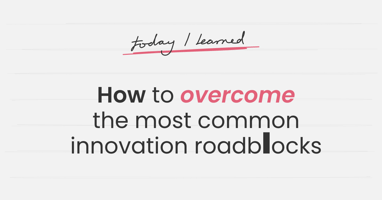When we design Stage-Gate® systems for our clients (also referred to as Phase-Gate systems), there is often rich discussion about what work requires a decision versus what requires an approval. The gates of gated processes are decision points. A team of gatekeepers meets to review a project team's work and decide that their progress warrants additional commitment of resources. By contrast, the project team sometimes requires one or more managers to review a particular deliverable and assume the responsibility of confirming that the work meets standards of accuracy and completeness.
For example, gatekeepers often need a financial document to understand a project's investments and revenue potential. By comparing Project A's financials against similarly formatted financials for Project B, they can prioritize one versus the other. But a gate meeting is not the time to dig deeply into such complex analyses, to study the underlying assumptions and analytic methodologies, or to gain confidence that the work has been done correctly.
In a well-designed process, the analysis will have been reviewed and approved before the gate meeting by one or more functional experts or higher-level managers. Gatekeepers should focus their decision on the data, not on the quality or accuracy of the data.
Which Leads Us to the Problem
The thing is, when you are a mid-level manager, you have a busy work life. Now you are also expected to review and sign off on a few dozen documents and spreadsheets? If so, you will want to be supported by a system designed to help you manage a number of issues:
- How will you be notified that an approval is due?
- How will you be notified that you've missed an approval deadline?
- Where will you find the information to review and approve?
- How will you accept or reject the information?
- How will you inform both the deliverable owner and the next approver that you have completed your review?
- If you have multiple approvals due, how can you view all of them in one convenient screen?
Similarly, the deliverable owner or project manager needs a system to manage communication with approvers, track the progress of the approval process, and alert the team when approvals are complete (which may trigger follow-on work or a gate meeting). And, by the way, ensure that no one starts an approval process prematurely, thus annoying some very busy managers…
How Collaborative Workflows Simplify Life
A well-designed collaborative workflow addresses all of these issues. Conditions must be met before the workflow can start (for example, NPV must be greater than a set benchmark). Once the workflow is triggered, notifications are sent to the appropriate approvers. Links are provided for approvers to easily access the documents to review and enter their approval or rejection. Upon approval, notification is immediately sent to the next approver (if any), or upon rejection, back to the deliverable owner. For rejections, the reasons are clearly stated. The process may move serially (for example, if it's moving up a hierarchy) or in parallel (for example, if multiple contracts managed by different managers must be reviewed).
In other words, the process handles all the complexity. Ever lose a document you need to sign off on? Not anymore. Process automation allows you to focus on the content you are reviewing instead of the process itself.
Conclusion
Well-designed processes usually require one to several types of collaborative approval workflows. The automation capabilities of Accolade® include highly sophisticated tools for designing workflows that can adapt to conditions. Get in touch today and let us demonstrate.
Stage-Gate ® is a registered trademark of Stage-Gate Inc.





